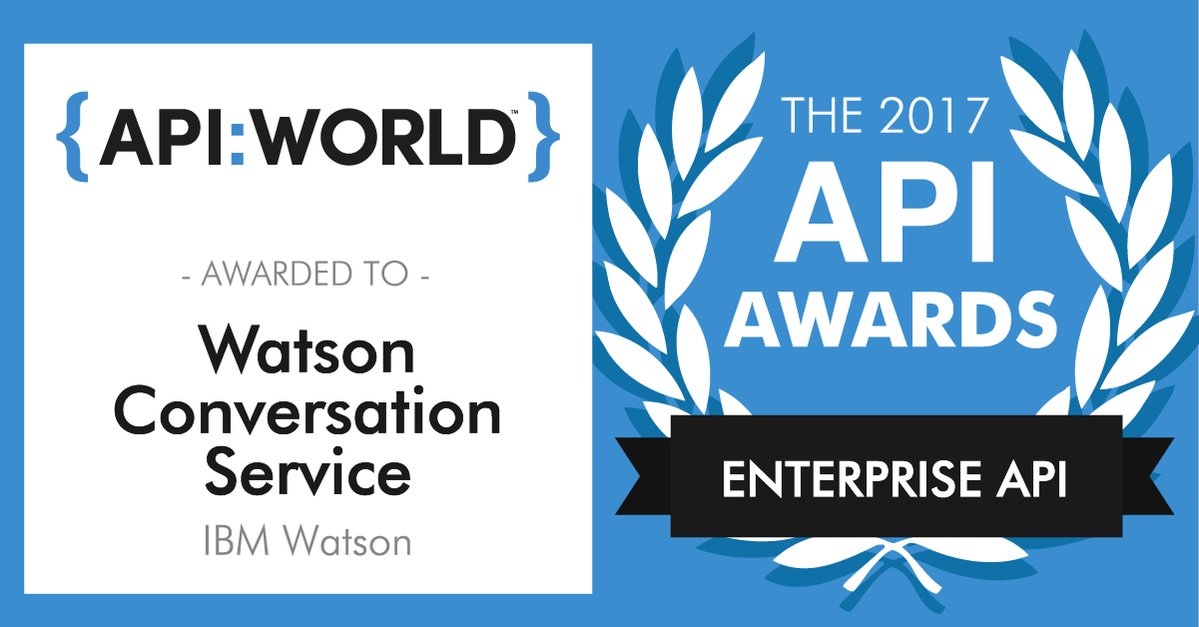Many businesses are considering an API Management software purchase and I am often asked why they should choose IBM’s product –
IBM API Connect. I thought I would use this blog to address this question without even discussing the capabilities and features of the product! Why not talk about the capabilities and features? Because they are constantly being enhanced and I’d like this blog to be valuable for more than a few weeks.
 Analyst Reports
Analyst ReportsMany businesses will compare IBM’s product capabilities to our competitors. We welcome you to do this comparison. IBM has achieved recognition as a leader by all the analysts in their currently available reports. You can download the current analyst reports
here.
In 2015, Forrester said “
IBM is moving faster than others to enhance its solution’s capabilities. Among  the vendors in the Q3 2014 Wave evaluation, IBM has made the broadest and deepest improvements to its solution
the vendors in the Q3 2014 Wave evaluation, IBM has made the broadest and deepest improvements to its solution.” (
source). The results showed a year later in “The Forrester Wave™: API Management Solutions, Q4 2016” where IBM was shown as the vendor furthest to the top right.
In IDC’s report, IBM was shown to be growing 60% faster than the overall market (which is growing fast itself) and 1.7X and 3.5X faster than the other vendors listed in the top three positions for market share.
Product Development ApproachFollowing the availability of the analyst reports we had many customers call us to ask how we had made such substantial improvements in our analyst evaluations. A large part of the answer is related to our development approach.

IBM API Connect uses an agile development approach focused on customer success. We deliver a release to market every 6 to 8 weeks. For
every capability we consider putting in the product, we align with a sponsor user. A sponsor user is a business that is requesting or interested in that capability. They agree to work with us in every phase of development from design through prototyping, testing, and deployment to ensure that all aspects of what is delivered meet the need.
FlexibilityWhat is your strategy? What are you trying to accomplish? Recently I published a blog series on
business drivers and use cases. IBM can assist you with all of these and more.

Do you want to start small and grow? IBM offers
flexible options ranging from a free trial to full enterprise level. Purchasing can be done on a capacity level or API call subscription whichever you prefer, allowing you to grow as needed.
Many businesses have a strategy to move to the cloud. API Connect is the exact same product in the cloud and on premise supporting your transition to the cloud as you are ready. Also, IBM supports many cloud providers. So, whether you choose IBM or another cloud (or several), your APIs can move where you like. You can also manage the deployment of APIs from a single API management instance to multiple API Gateways co-located with your data and transactions wherever they may be – on premise or in the cloud.
Recently IBM introduced an option called “
reserved instance” which allows you to run a dedicated (isolated) instance of API Connect on the public IBM Cloud (previously Bluemix) infrastructure – marrying the best of both public and private clouds at a very attractive price.
Do you have multiple Lines of Business (LoB) which operate relatively independently? API Connect supports the ability to run multiple totally independent tenants on a single implementation allowing each LoB to run its own API initiative on shared infrastructure. Or, using our syndication capability, each LoB is provided independence throughout the API Lifecycle but can publish APIs to a shared Developer Portal, providing a single face to your customer across the LoBs.
Security
One of the core tenants of any API management solution is that it must provide security. In the architecture, the API Gateway component is tasked as the run time enforcement point for the security.
The DataPower gateway is a purpose-built API Gateway. It is available in multiple form factors (physical, virtual, and containers) and can run on premise or in any cloud supporting the virtual or container options. The DataPower gateway is DMZ ready. It does not run any common executable runtime such as Java, and is locked down such that only gateway specific functions can be deployed. Many competitor products are built from common software components (e.g. Java, Linux, etc.) and as such should not be deployed into a DMZ where an outside Java executable could be introduced. If your API Gateway is not located in the DMZ and you are first executing security checks behind the internal firewall you are open to potential security exposures. But, running code executable components such as Java in the DMZ is an even worse option. This requires many competitor implementations to run two gateways, one in the DMZ and a second one inside the trusted zone. This is not optimal. See “
Is a Combined ESB and API Management a Good Idea?”
Architected for Agility
Since IBM API Connect V5 was introduced in March 2016 it has supported the full lifecycle for APIs – Create, Run, Manage, and Secure. We recognized that simply managing and securing APIs was not sufficient. As new capabilities are needed the ability to create and run new APIs with business logic contained in microservices would be a critical part of a full API solution.
The API Connect ability to help automatically create APIs and microservices has continued to be a differentiator versus most competitors who either do not do this at all, or provide only minimal assistance (e.g. integrating an editor).
The multi-cloud support previously mentioned also provides for agility as you implement a multi-cloud strategy.
Solution strategy
IBM recognizes that an API is part of an overall solution. To be successful and API must be consumed and used by a developer to create value and the API itself must integrate to the back-end Systems of Record, wherever they are located (cloud or on premise) to deliver a successful result. IBM provides experience and assistance in architecting and implementing the full end to end solution.
IBM Strategy
IBMs strategy is built around cloud and cognitive computing. APIs are the “on ramp” to both. Watson,

IBMs cognitive platform, is accessed via APIs. Cloud native applications and microservice architectures transitioning to cloud are accessed via APIs. IBMs cloud platform as a service, is built with an integrated API Connect capability and executes the DataPower gateway. IBM purchased the Weather company, and the weather data is also accessed via APIs.
IBMs CIO office is executing API Connect making our own assets available. IBMs software portfolio is implementing APIs as a core interface. This includes: IBMs hybrid integration portfolio, application server, process management products, analytics, mainframe, and more.
APIs are a fundamental part of IBMs strategy. Additional thoughts can be found in the whitepaper, “
Why Your Business Needs APIs (and Why Your APIs Need IBM API Connect)”.
Are our competitors equivalent? You may find some of the aspects I’ve mentioned available in some competitors. However, you will not find a single competitor that covers all of these traits.
To understand more about IBM’s thoughts on the API Economy visit the IBM
API Economy website. IBM API Connect is IBM’s complete foundation to Create, Run, Manage, and Secure APIs. You can find more information about IBM API Connect at the
API Connect website. And you can also experience a
trial version of API Connect.
If you have questions, please let me know. Connect with me through comments here or via twitter
@Arglick to continue the discussion.
#AnalystReport#APIConnect#APIeconomy#APIEconomy#APImanagement#APIscience#APIsecurity#APIstrategy#api_strategy#APIConnect#apimgt#apis#BusinessStrategy#experienceAPIs#FirstLook#ibm#ibmapimgt#MarketTrends#security#think_apis